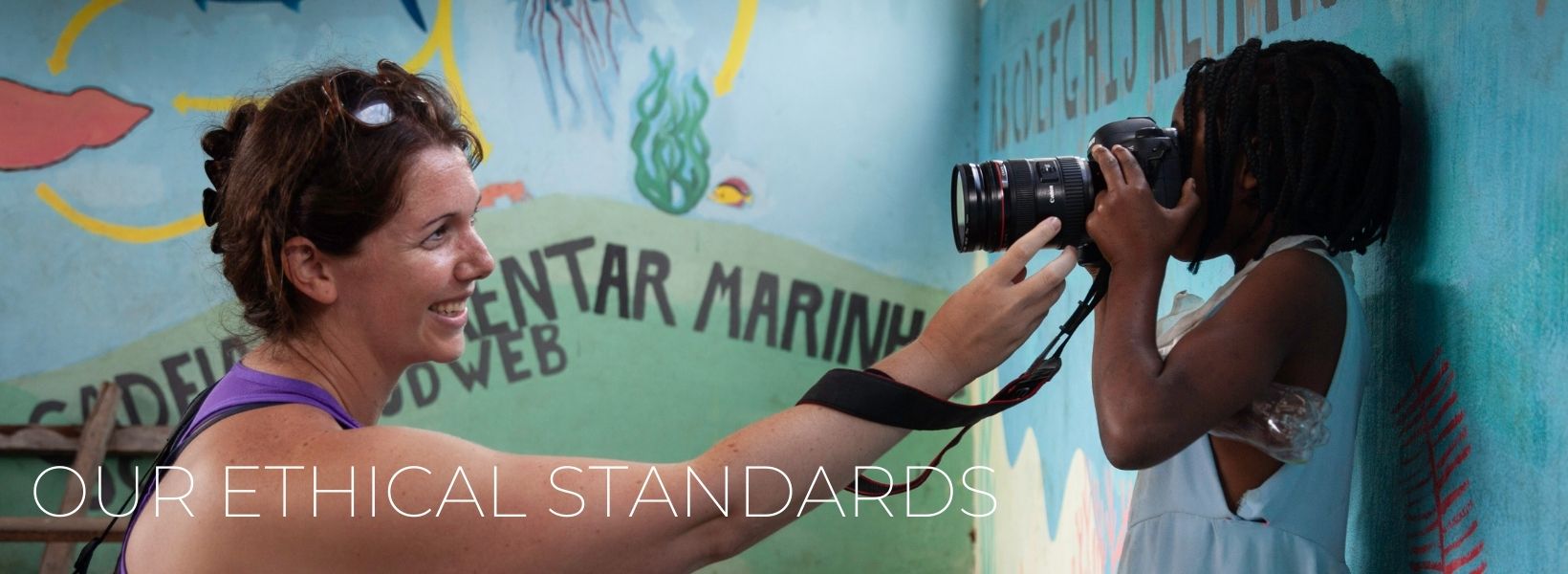
Whenever you volunteer, work or participate in an expedition abroad, always check out the organisation you’re going with and their ethical policies. Here at Love The Oceans we’re committed to ensuring your time is used both ethically and efficiently. To find out more about what our programs entail please click here. Here are a few reasons why Love The Oceans is an ethical volunteering organisation:
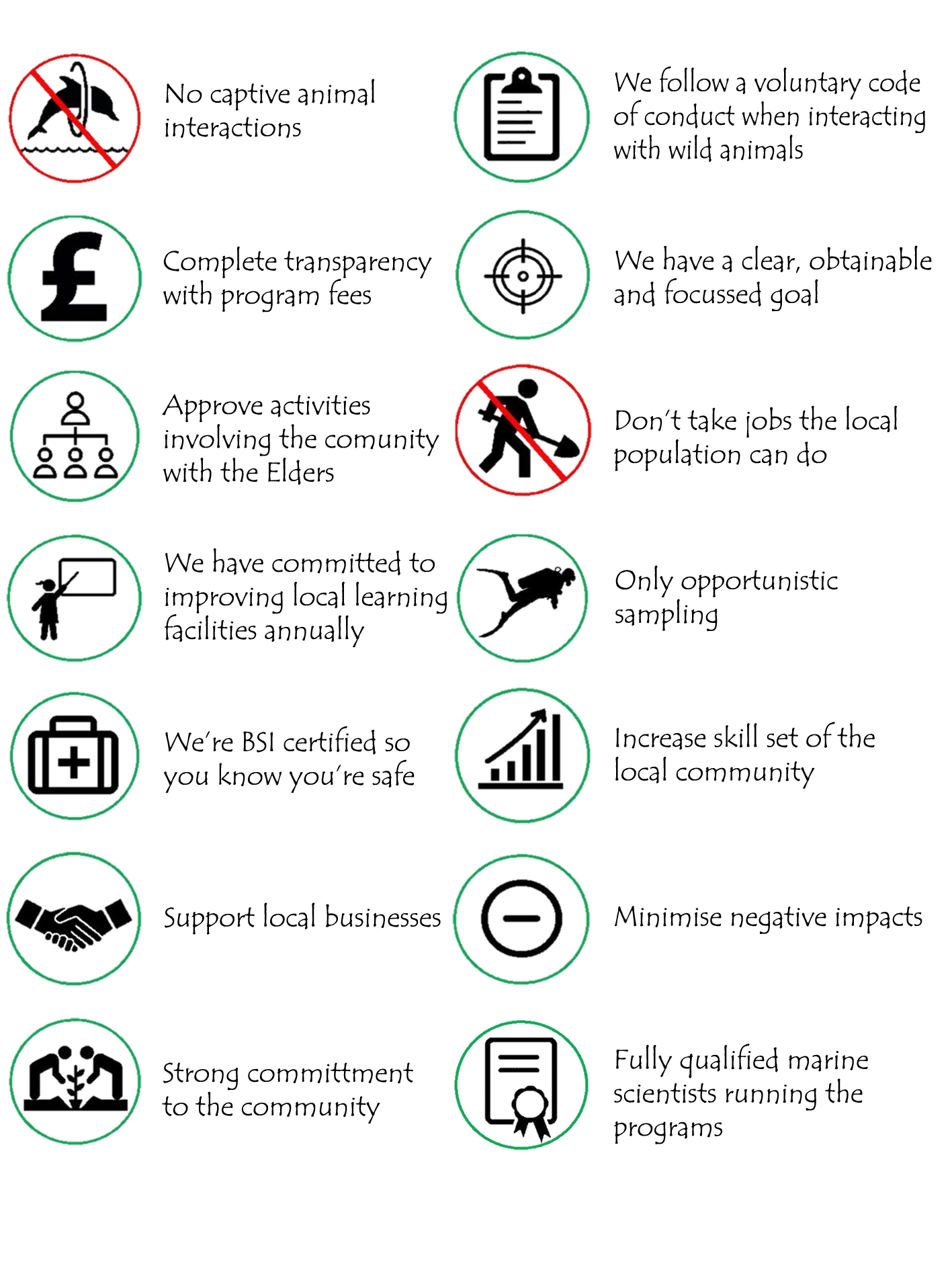
CONTINUITY, CONSISTENCY AND COMMITMENT

COMMITMENT
Love The Oceans’ end goal in Mozambique is to establish a Marine Protected Area in the Inhambane Province, using a bottom-up, community-led approach through research, education and diving. In order to achieve this goal and ensure a long-term impact and a significant contribution to our local community we have committed to delivering a continuous and consistent effort, both in our research and our community work, minimizing any possible negative impacts. It is important for us that the work you do with us is meaningful, not just for the project you are working on, but also for you. We can therefore guarantee that whether you decide to join us for a 2, 3 or 5 week program, you are always contributing to ongoing projects and directly contributing to the achievement of Love The Oceans’ end goal of establishing a Marine Protected Area. At any point during the program if you are unsure of why you are doing an activity, please ask our staff, they will be more than happy to show you how it links to our larger end goal.
CONTINUITY
The keystone in achieving our end goal is educating the next generation of fishermen about sustainable fishing and the importance of protecting the ocean. We do this by teaching at two of our local schools, Guinjata and Paindane School, throughout the week. Despite the fact that 33% of the population lives within 25 km of the coast, very few Mozambicans know how to swim. We are hoping to change this in our area by giving free swimming lessons to the school children on Saturday afternoons, helping to fuel their passion for the marine environment with a view of them one day being able to experience the underwater world for themselves.
We are very conscious that continuity is vital to make an impact, especially when working with children, and we have therefore planned our program schedule to provide 6 months of continuous teaching and swimming lessons every year. Our syllabus is approved by the schools and we have Pascal, our Community Outreach Manager, leading the classes. Only program participants who are studying a related subject to university level or above can teach the classes. Participants without relevant degrees cannot teach but are more than welcome to help paint.


CONSISTENCY
Every year we undertake and deliver over 6 months of continuous field work and data collection across our 4 research areas; fisheries, coral reef surveys, megafauna research and ocean trash. We have planned our marine conservation programs to maximise the coverage of ongoing research across our 3 research sites and ensure continuous data collection throughout our field season. We use the internationally recognised Reef Life Survey methodology to ensure that our coral reef survey data is comparable to data from similar locations.
RESPONSIBLE RESEARCH
Love The Oceans’ baseline data collected in 2014 indicates that the small-scale, artisanal fisheries operating out of our local bays do not always adhere to current legal requirements regarding both species and catch size. By collating data on the current fisheries practices in our area Love the Oceans hopes to properly assess the sustainability of the current fisheries and eventually determine a minimum landing size for individual species of fish, crustaceans and cephalopods. While current practices are often unsustainable and at times upsetting, as endangered species such as sharks and manta rays are often landed and killed, it is not Love The Oceans place to interfere: Love The Oceans is a research organisation and our purpose is to observe and collect data adhering to our fisheries methodology. Our goal is to collect the data needed to prove that the current practices are unsustainable and to work with the local communities to end these practices.
Much of our work involves interaction with animals as a result of data collection. Love The Oceans is committed to handling animal interactions ethically. We do not work with any animals in captivity and do not harm or interfere with any wild animals. We abide by CITES protection with listed species and have our own Code of Conduct when dealing with wild animals, not only for the health of that individual but for the safety of our volunteers as well. We are also a Partner of the World Cetacean Alliance – the world’s largest Partnership working to protect whales, dolphins and porpoises (cetaceans). Through cooperation, the Partners of the World Cetacean Alliance aim to conserve and protect cetaceans and their habitats in the world’s oceans, seas and rivers, to ensure their continued health and survival.


SUSTAINABLE INTERACTIONS: LIMITING AND ELIMINATING DEPENDENCY
We aim to make our interactions with our local community sustainable by investing as much money as possible in the local community: This means that we employ, source and buy locally whenever we can. We are committed to minimising our impact on the local communities and therefore only ask our program participants to complete tasks that do not take away local jobs, e.g. painting at the schools, and instead employ local workers to maintain and build new school buildings. The paintings Love The Oceans’ volunteers do at the schools are educational murals e.g the human body labelled in Portuguese. With approximately a 50% illiteracy rate in the local community (~75% in women) our volunteers are creating murals the local community have requested and cannot currently create themselves.
By supporting local businesses and providing better facilities for both teachers and students at the local schools we hope to limit and eventually eliminate the dependency on our help. In 2018 we secured an internationally recognised STA Award in Teaching Swimming for our Community Outreach Manager, Pascal, and Aquatic Helper qualifications for our Ocean Conservation Champions, enabling Pascal to run swimming lessons without our help and outside of Love The Oceans’ field season.
CULTURAL AWARENESS
We greatly respect the communities that we work with, and it is essential for us that our interactions with our local communities reflect that. We therefore introduce both our staff and volunteers to the communities they will be working in at the beginning of each programme. During training week you will have the chance to visit our Community Outreach Manager, Pascal, and his family to gain a better understanding of the cultural context, the problems that the communities in our region face, and the background of the children you will be working with in the schools.
While working with Love The Oceans you are representing the organisation in our local community at all times, not only during fieldwork or when you teach at the schools, but also outside of normal program hours. We therefore hold our staff, volunteers and assistants to standards of code of conduct to minimise our impact on local culture and to uphold the good working relationship we have with our local communities.

SUBSCRIBE TO OUR NEWSLETTER
22 Wycombe End, Beaconsfield, Buckinghamshire, HP9 1NB, UK
info@lovetheoceans.org
© Copyright 2019 Love The Oceans
Love The Oceans Conservation charity number 1184402
Registered in England and Wales

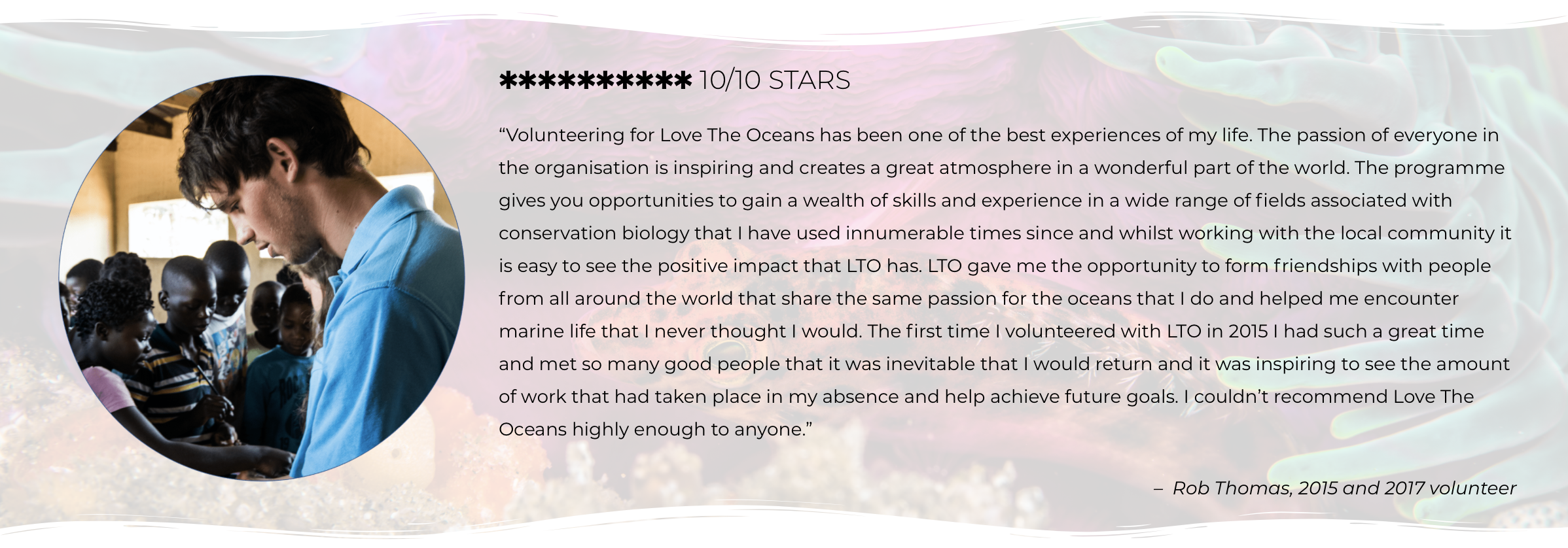
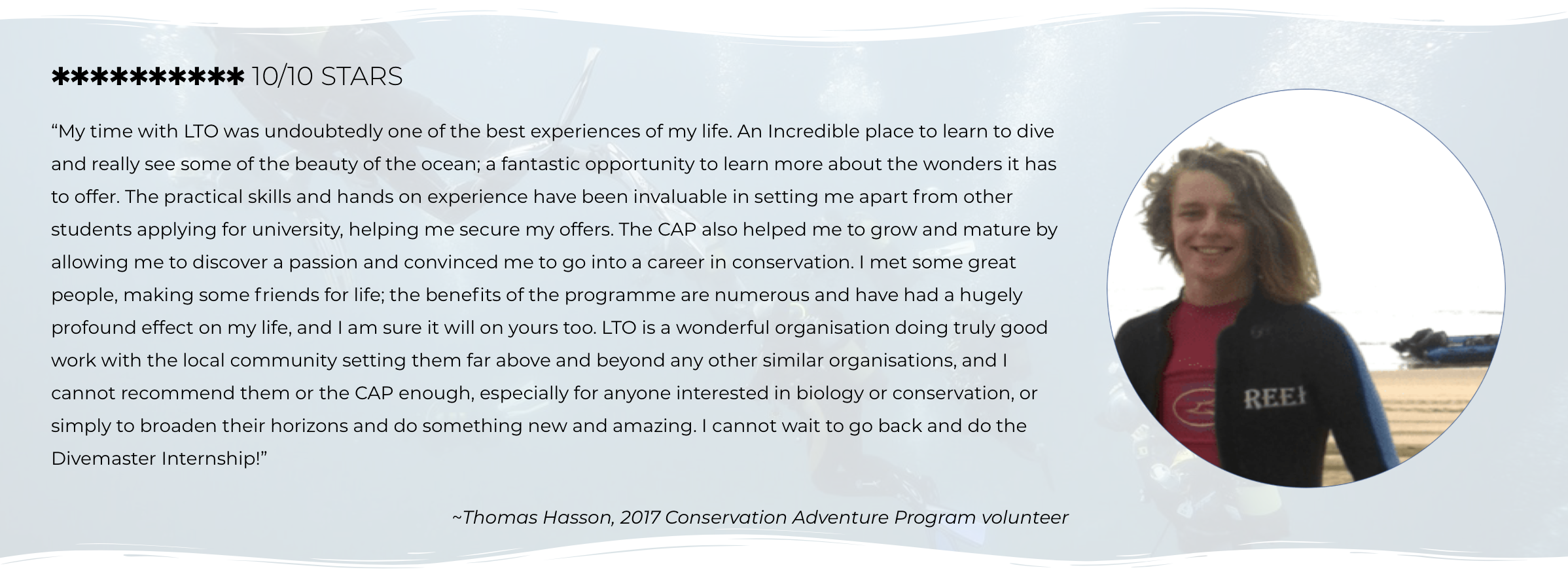

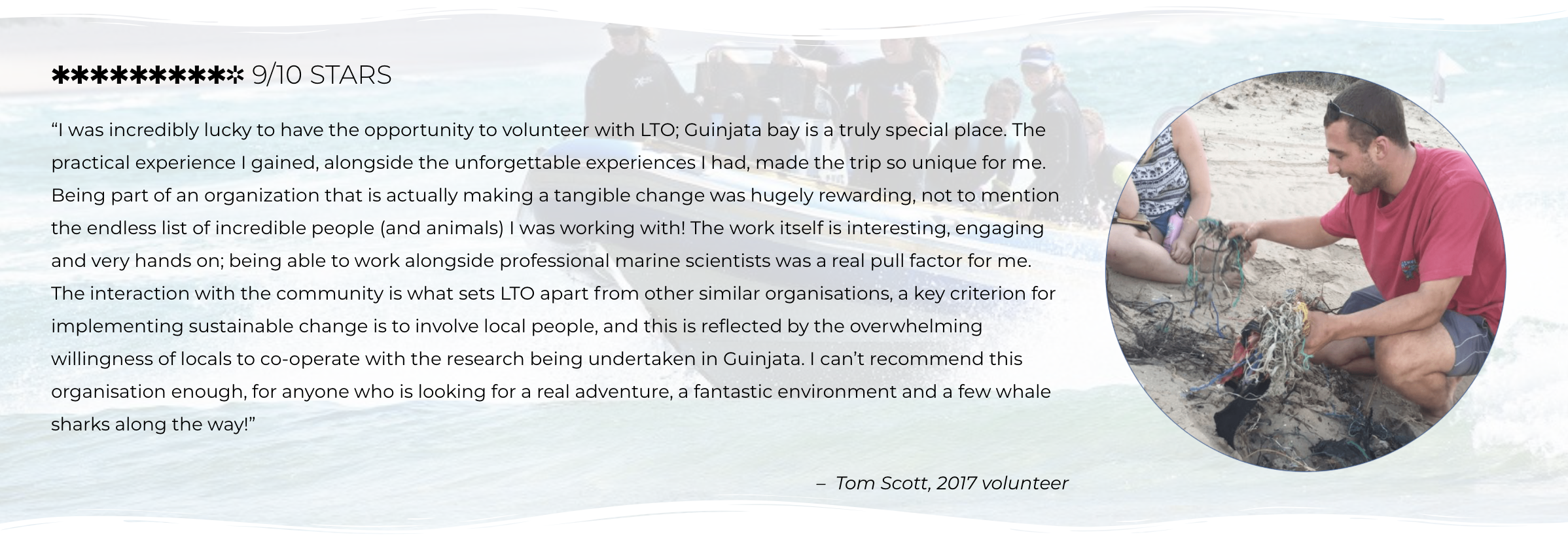
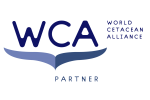


![Oceans New Logo WINNER 2021 FINAL BM[5] Oceans New Logo WINNER 2021 FINAL BM[5]](https://lovetheoceans.org/wp-content/uploads/elementor/thumbs/Oceans-New-Logo-WINNER-2021-FINAL-BM5-p75rusr4xoa6lpy31siy5h87ma4akt1j9oikbrp734.png)



